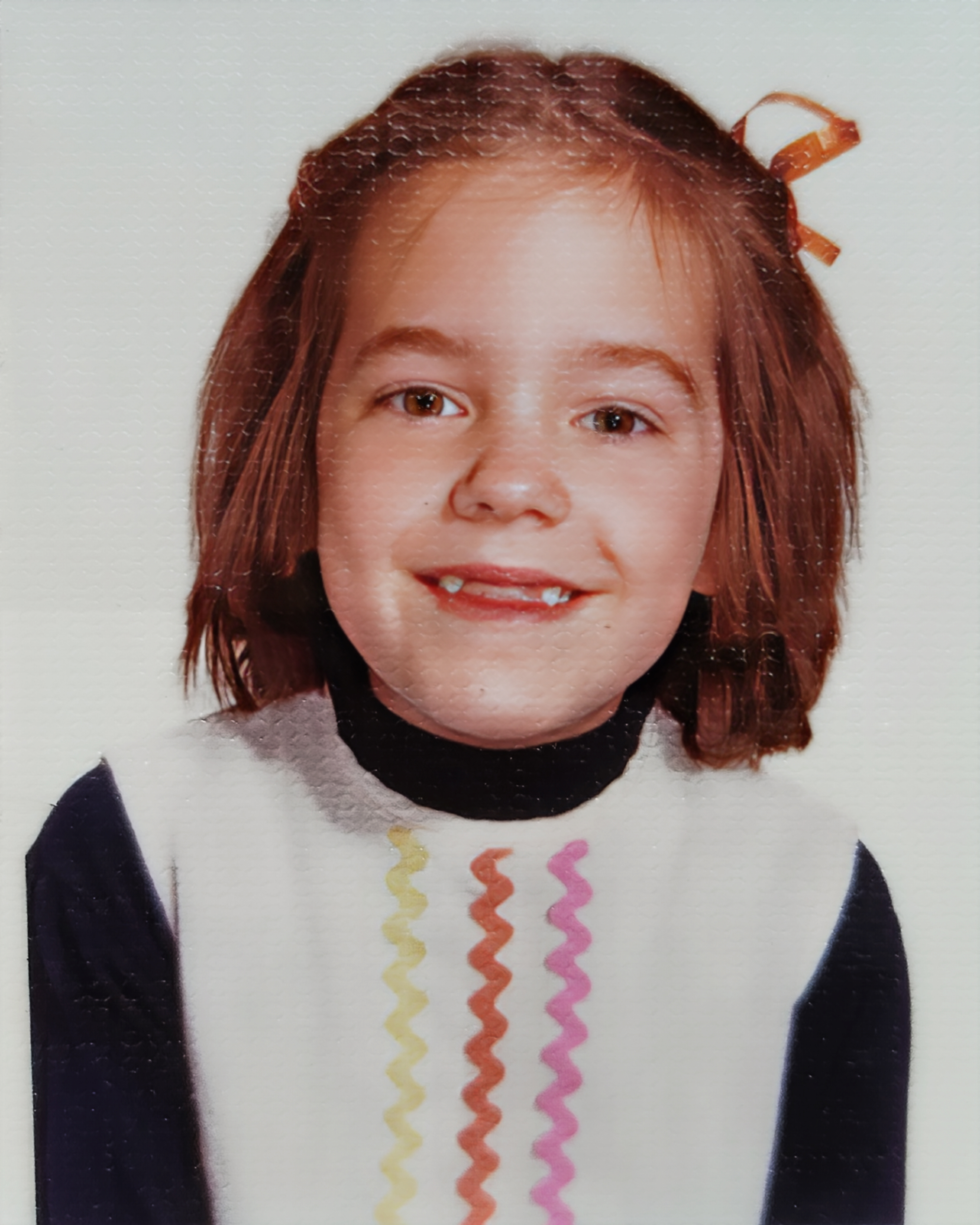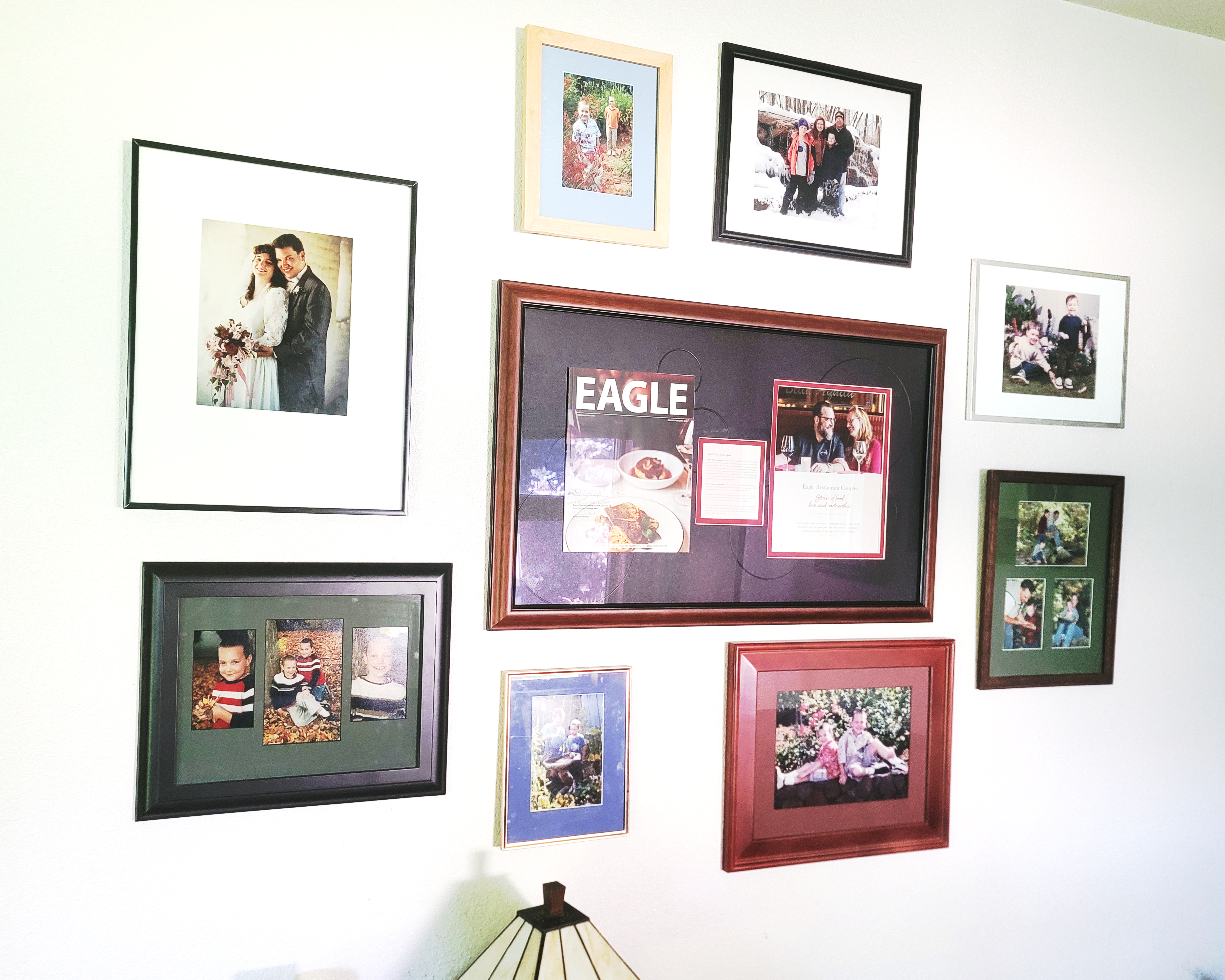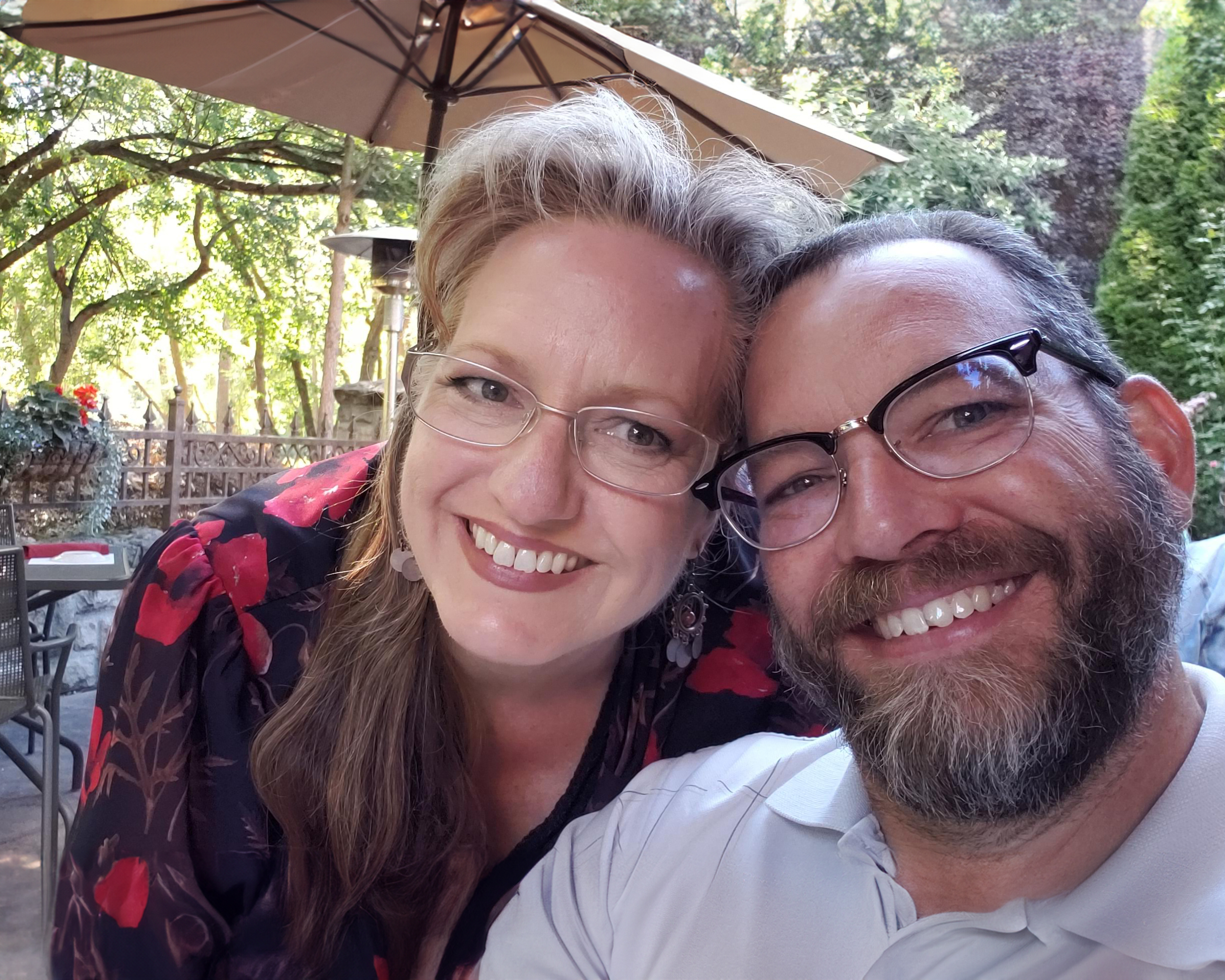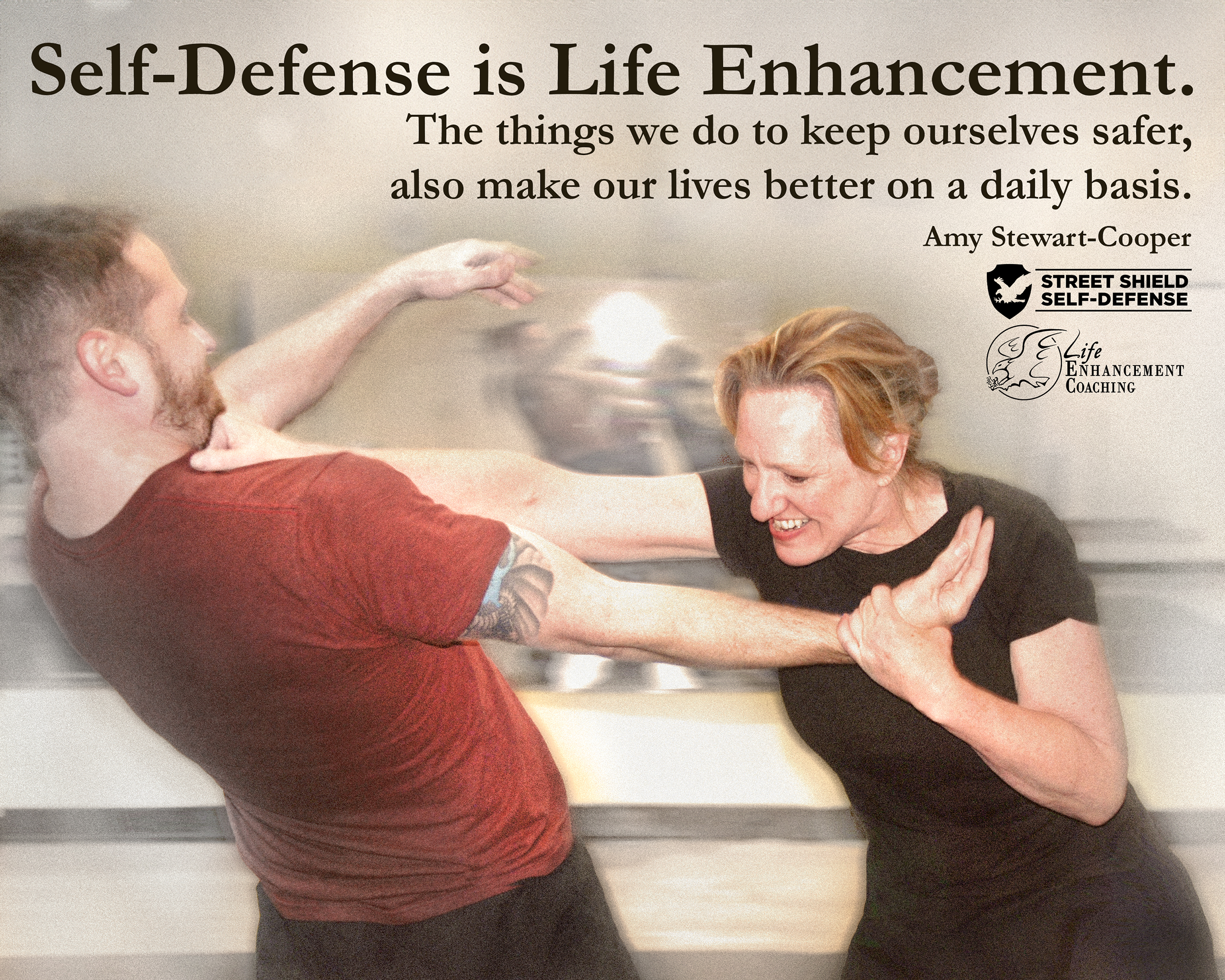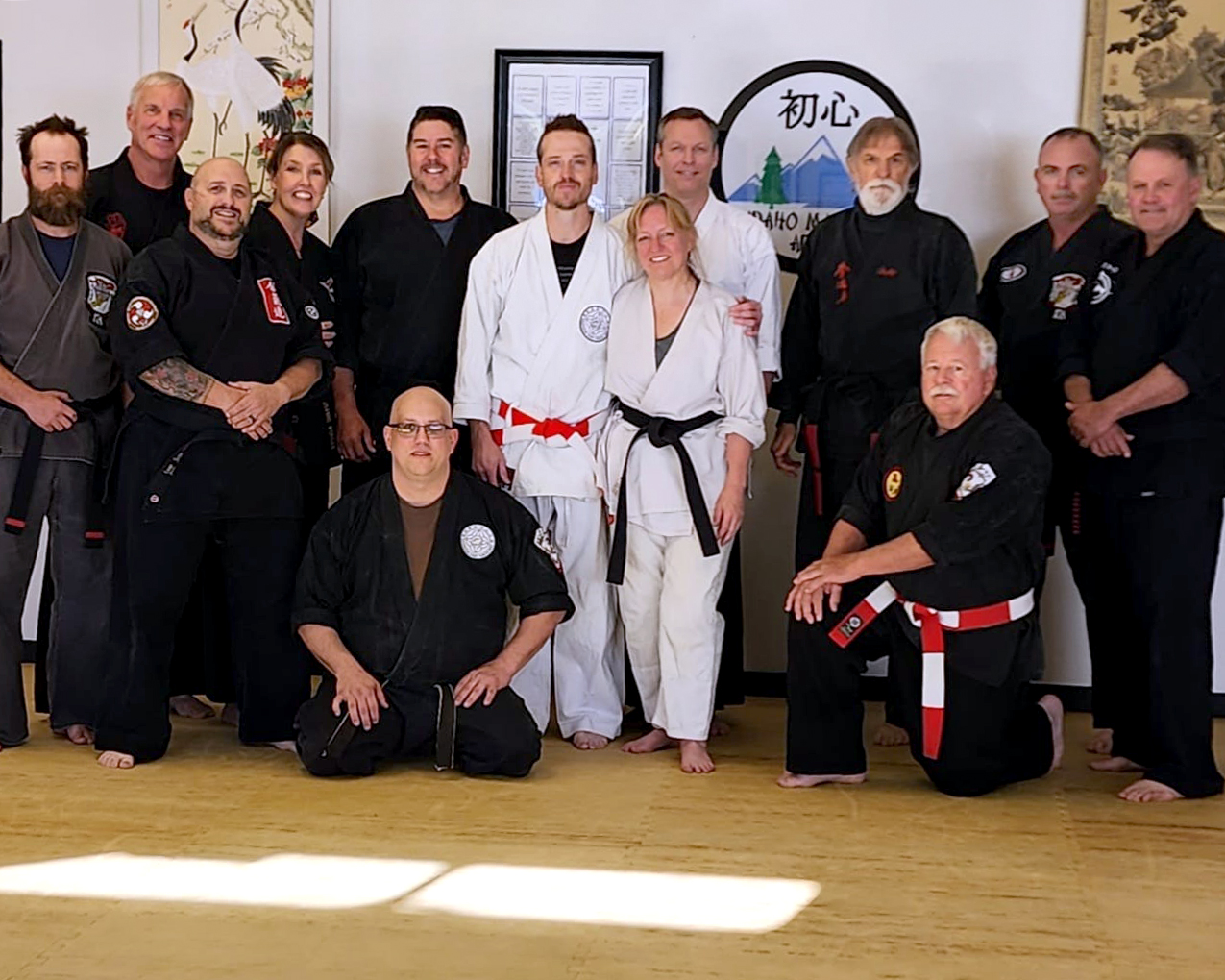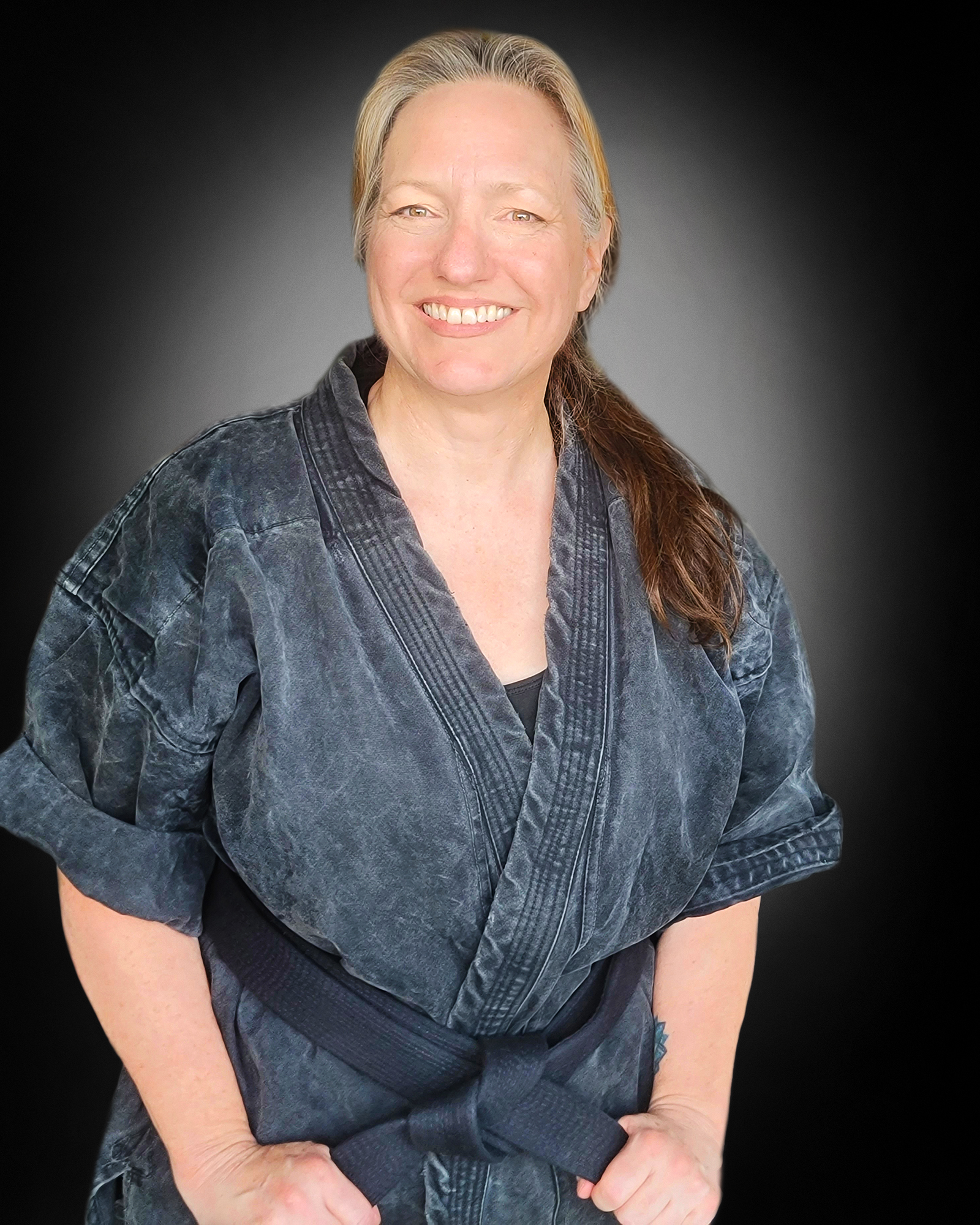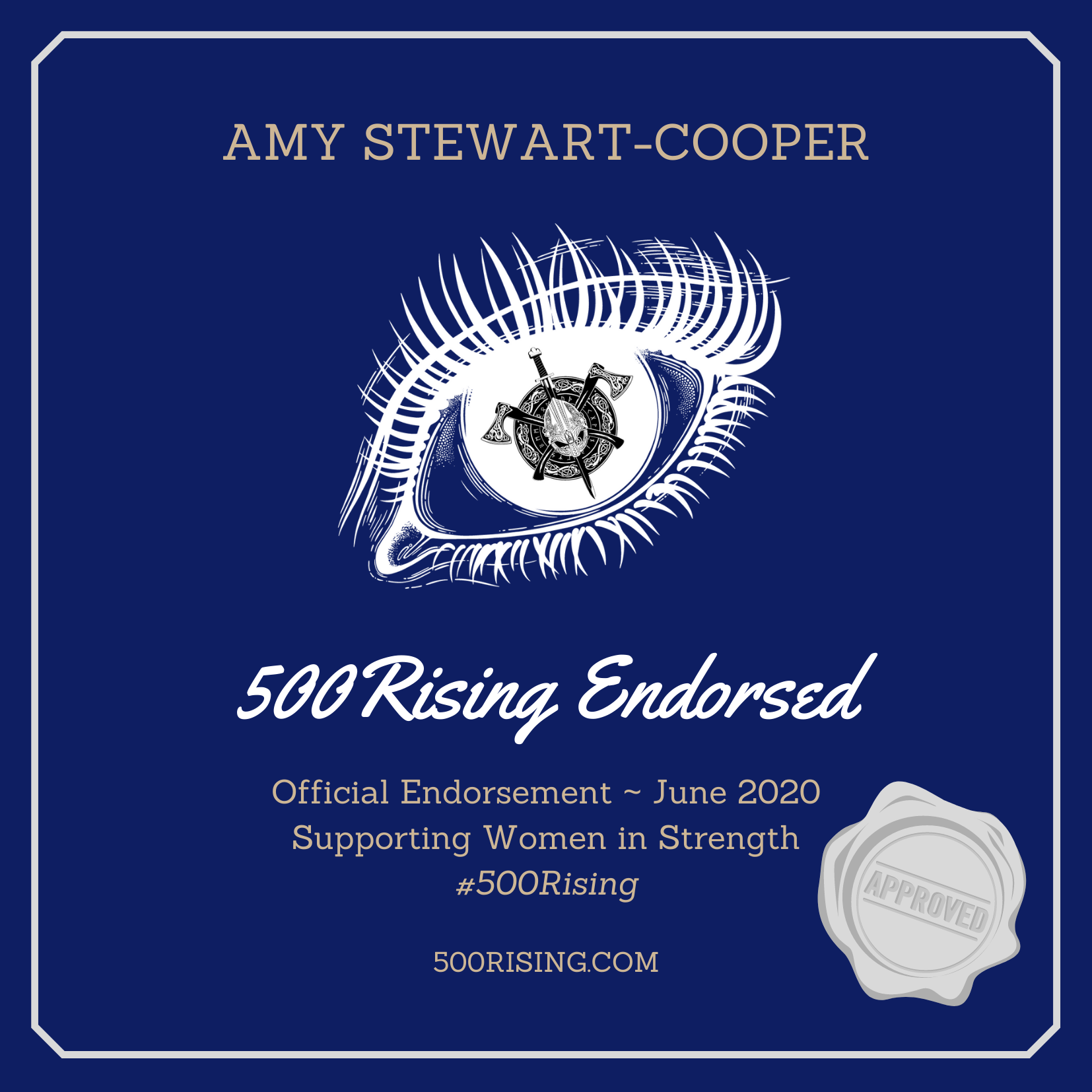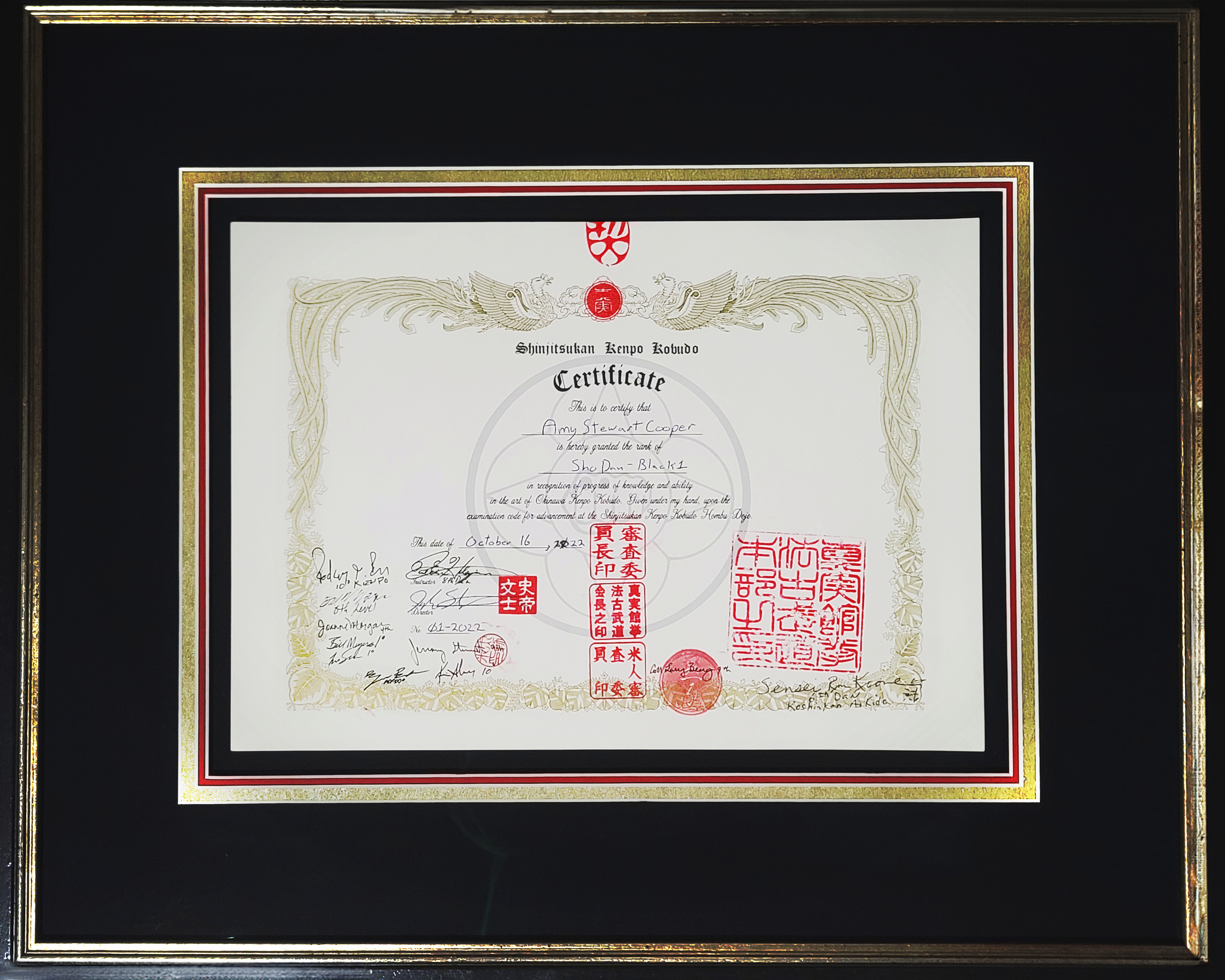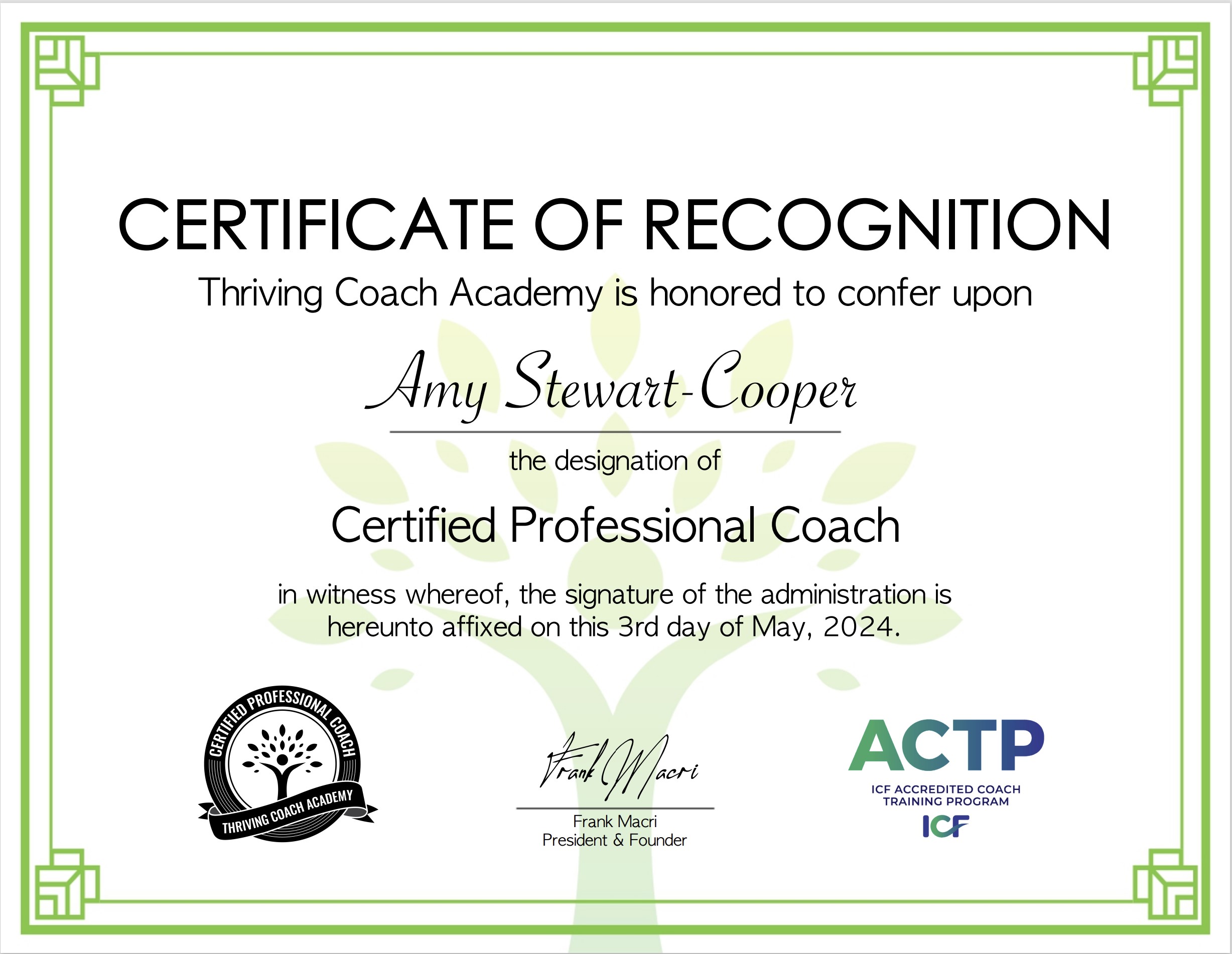About Me
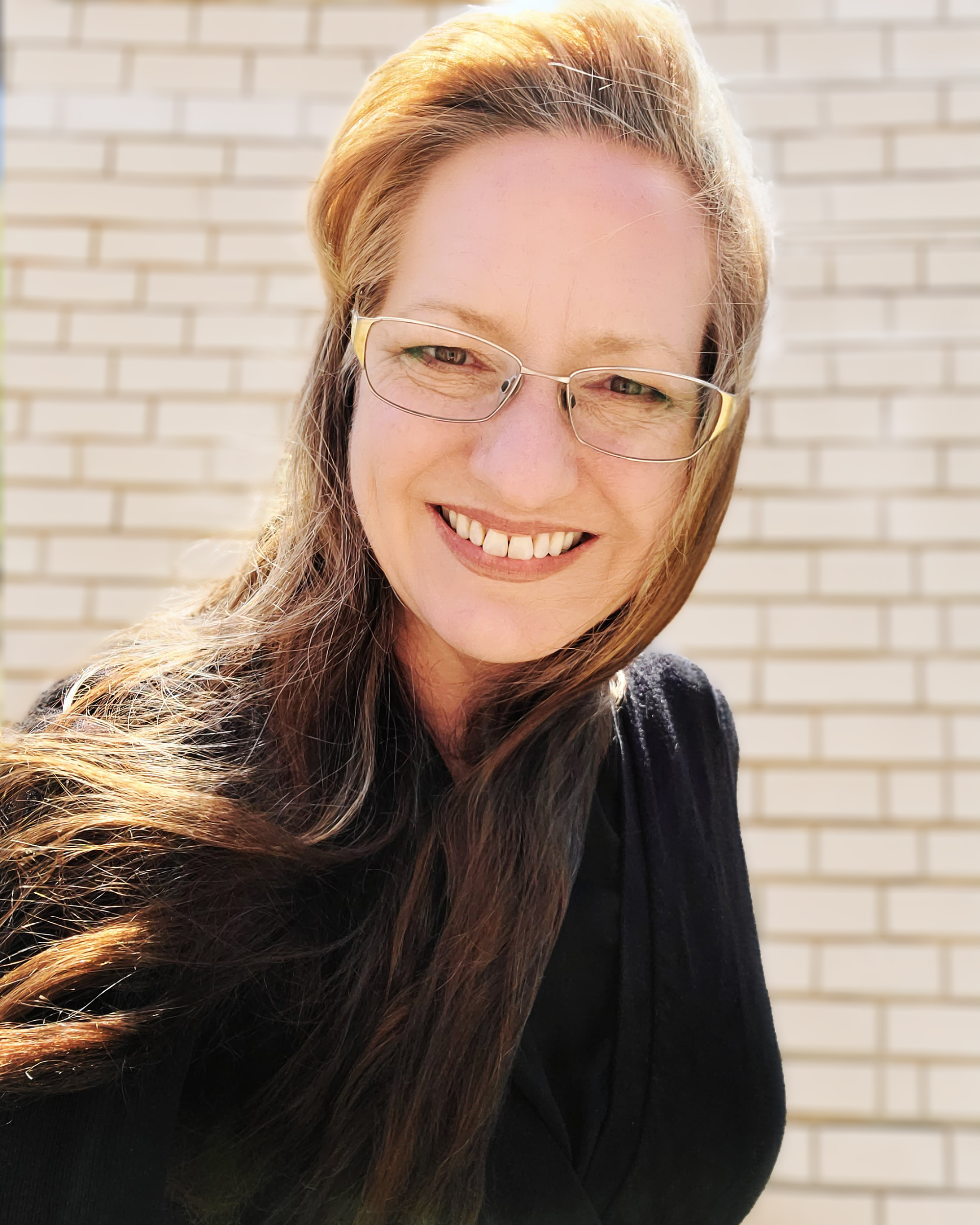
I only recently realized that I likely have ADHD. As a child, it went unrecognized, but my idiosyncrasies and behaviors fit the pattern.
Not long ago, I asked my Sensei, "Do you think I might have ADHD?"
He replied, "You mean you don't have a diagnosis already? Yes, I totally have to teach you as if you have ADHD."
One of my children has been diagnosed with ADHD, the other with AudHD. Almost everyone in my life, including my former employees at the restaurant, either has a diagnosis of ADHD or autism, or exhibits those traits. We seem to naturally gravitate toward each other.
Over the years, I’ve developed many skills to help people with ADHD advance in their careers, including developing their leadership skills. This is why I’ve embraced this niche:
I’m an ICF-certified ADHD career and leadership coach, supporting neurodivergent professionals in advancing their careers with clarity and confidence.
My Coaching Philosophy
The throughline of my work is agency and self-efficacy. I believe ADHD leaders have the empathy and creativity the 21st century needs.
ADHD traits evolved to meet critical group needs: spotting patterns others miss, thinking in new ways, and reading emotions deeply when survival depends on it.
This is what this means for you:
I’ll help you stop fighting your brain and start partnering with it. No more cycles of burnout and recovery. Instead, you’ll create a way of leading that energizes you—leading yourself first so you can lead others with clarity, steadiness, and trust.
I’ll support you in using your empathy as a strength, building trust and psychological safety for your team, and creating an environment where people thrive and innovate. This is how you become the boss you’ve always wanted to work for.
You’ll refine your creativity, transforming unconventional ideas into practical strategies that drive progress. ADHD brains are wired to see patterns and gaps others overlook and connect ideas that break through old limitations. This results in solving complex challenges in ways that energize both you and your team.
The ultimate goal is living a Life of Flow. I achieved this when I owned my restaurant, I became the boss I’d always wanted to work for. My absolute favorite part of ownership was developing talent. I built an empowering environment where my team could step up, which let me focus on big-picture leadership. My team supported me in taking time for my martial arts and for travel, saying, “We’d rather have you here and happy for fewer hours, than here all the time and burned out.” They appreciated that I trusted them, and I appreciated them having my back.
This is what it means to live an Enhanced Life.
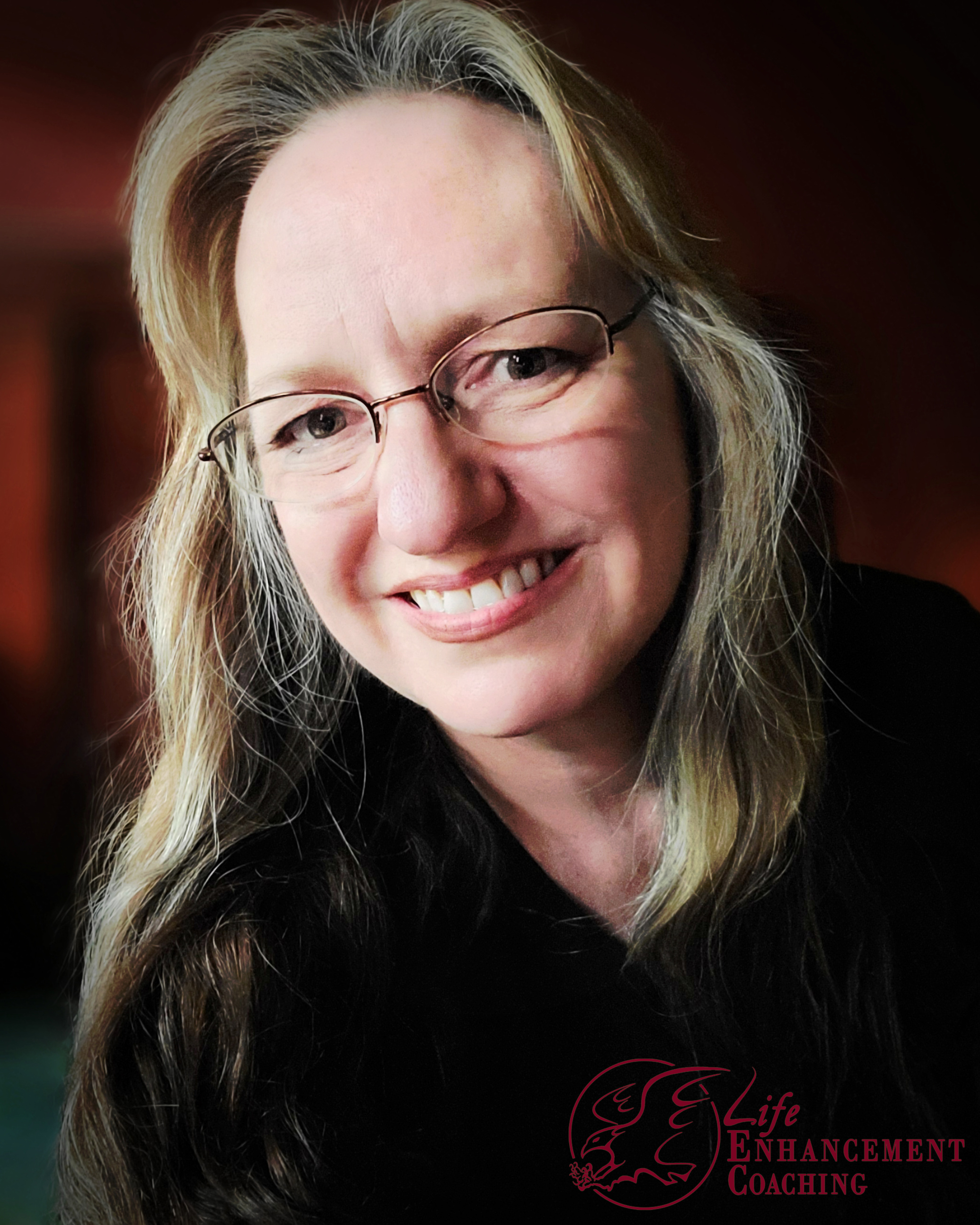
Let's Get Started!
Curious About My Coaching?
FAQS
What is life coaching, and how is it different than therapy?
A few sayings that ring true are, "therapy focuses on the why of a problem, life coaching focuses on the how to get out of the problem." And "therapy gets you from dysfunctional to functional, life coaching gets you from functional to optimal."
That said, you can work with a therapist and with a life coach at the same time, it's an incredibly powerful combination. If you're currently seeing a therapist, please ask them if you're ready for life coaching.
How long does a typical coaching program last, and how often are sessions scheduled?
For best results, my program consists of one session per week for a minimum of three months and I recommend six months. It's one thing to have an amazing breakthrough while in session, but making that breakthrough into long lasting change takes time. Most of my clients say that their quality of life improves very quickly, within just the first few weeks, because they feel supported and they are creating action plans that they know will pay off. However, achieving goals and making lasting change takes time and "life reps" of the new skills.
What does a typical coaching session look like?
I do most of my coaching via Zoom, I have also coached via phone calls and texting through Whatsapp. Sessions last about 45 minutes to an hour. My clients like to begin by recapping their week, things that went well and things that did not. After that we come up for an agenda for the remainder of the session. Most of the time we're working toward a goal, but sometimes, honestly, what the client really needs that day is to be listened to compassionately. By the end of session the client usually comes up with a plan for their week, including strategies to handle anything that might get in their way, and also accountability.
Will I have to do work outside of our sessions?
Yes! In order to achieve your desired results you will need to do work outside of our sessions. The good news here is that you get to decide what sort of work you will do.
Life Coaching is all about what you want and need and desire, I'm just here to support you. I'll make suggestions but you decide whether or not you want to try them. Not everything works for every person. My suggestions are only "good" if they work for you.
Do I need to be a martial artist? Will I be required to take a self-defense class?
No, not all at. My coaching is rooted in the intersection of life coaching and the non-physical skills (also known as soft-skills) used in the martial arts and self-defense. This intersection requires no formal training. However, if you ask me I will absolutely encourage you to get training, but it is not in any way a requirement.
Can you work with people outside of your state? Outside of your country?
Yes! In fact my very first client lives in Europe. I do my coaching via Zoom, phone, and Whatsapp. There are no restrictions on life coaching, we can work with anyone anywhere in the world.
What is gamefication? How will it help me? Am I required to play?
Gamefication is a way of turning every day tasks into fun games to maintain interest throughout your day. The best example I can give is Mindfulness is the same skill as really good Situational Awareness. I can explain to you how to do Mindfulness, or I can teach you Situational Awareness games that will train the same skill plus they will add fun to your every day life. Do you want an explanation? Or you do want to have fun? I want to have fun!
How will it help you? Play is how humans learn best. Also, it's fun!
You are not required to play. Life Coaching is all about your wants and needs and desires, so you get to choose which activities you will participate in. My suggestions are "good" only if they work for you.
What do you mean by self-defense "soft skills?"
Self-defense "soft skills" are the non-physical skills that we use to keep ourselves safer. These skills have both a "life protection" aspect and a "life enhancement" aspect. Some examples are:
Situational Awareness (life protection) is good Mindfulness (life enhancement).
Boundaries (life protection) are good self-care (life enhancement).
Articulation (life enhancement) can improve your creative arts (life enhancement).
What certifications and trainings do you have?
I graduated from Thriving Coach Academy which is an ICF accredited program. Because I'm a new coach, I am currently offering my program at a hugely discounted rate, which I will discuss in the next FAQ.
Most of my self-defense training has been through organizations such as Violence Dynamics, Rory Miller's Chiron Training, and 500 Rising through which I have Endorsed Colleague status. I also have a 2nd degree (Nidan) black belt in Okinawan Kenpo and Kobudo, a black sash with red fringe in Tai Chi, and color belts in numerous other martial art system
I have a BFA in Fine Art Photography from San Jose State University which, believe it or not, significantly improves my Situational Awareness and Mindfulness. Also, all the photos on my website and my social media are mine, these are actual scenes from my real life.
I think it's significant for me to mention that I used to own and operate a popular restaurant, Bella Aquila Restaurant, with my husband, Chad, even though there are no specific trainings or certifications associated with it.
I also used to work with developmentally disabled adults as a Behavior Specialist and Recreation Coordinator.
How much does your program cost? How can I sign up!
You are in luck! As a new coach I am looking for five clients to help me test drive my coaching program at a significantly discounted rate. I ask that you take the coaching seriously as if you were a fully paying client, and then when you get your desired results you write a testimonial for me.
My coaching program is going to cost $3k for three months or $6k for six months. My five clients will get 50% off that rate, 20% off for the following five, and then with lots of experience and testimonials my program will be at the full price.
How can you sign up? Please go to my Calendar Page to book a free Exploration Phone Call.
Testimonials
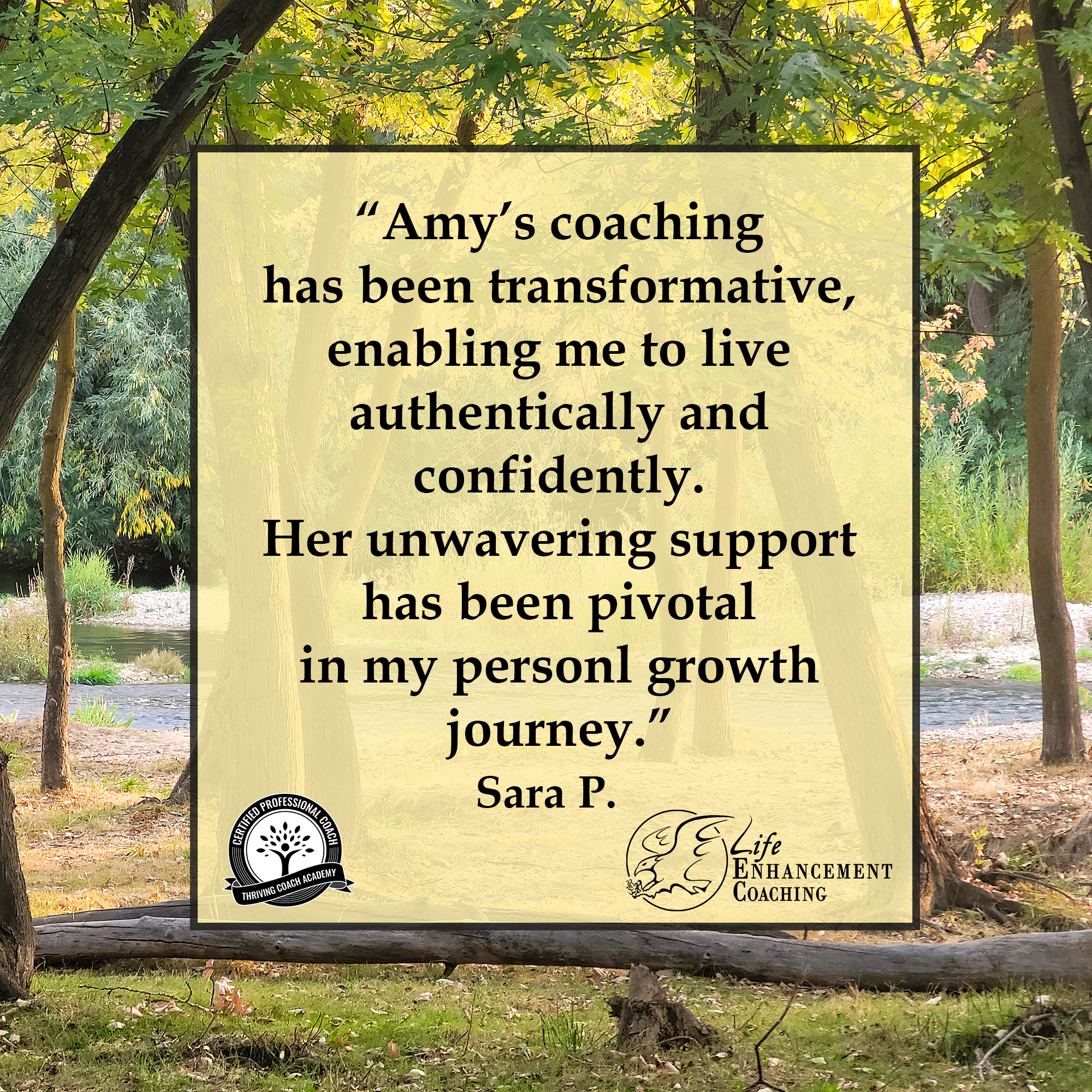
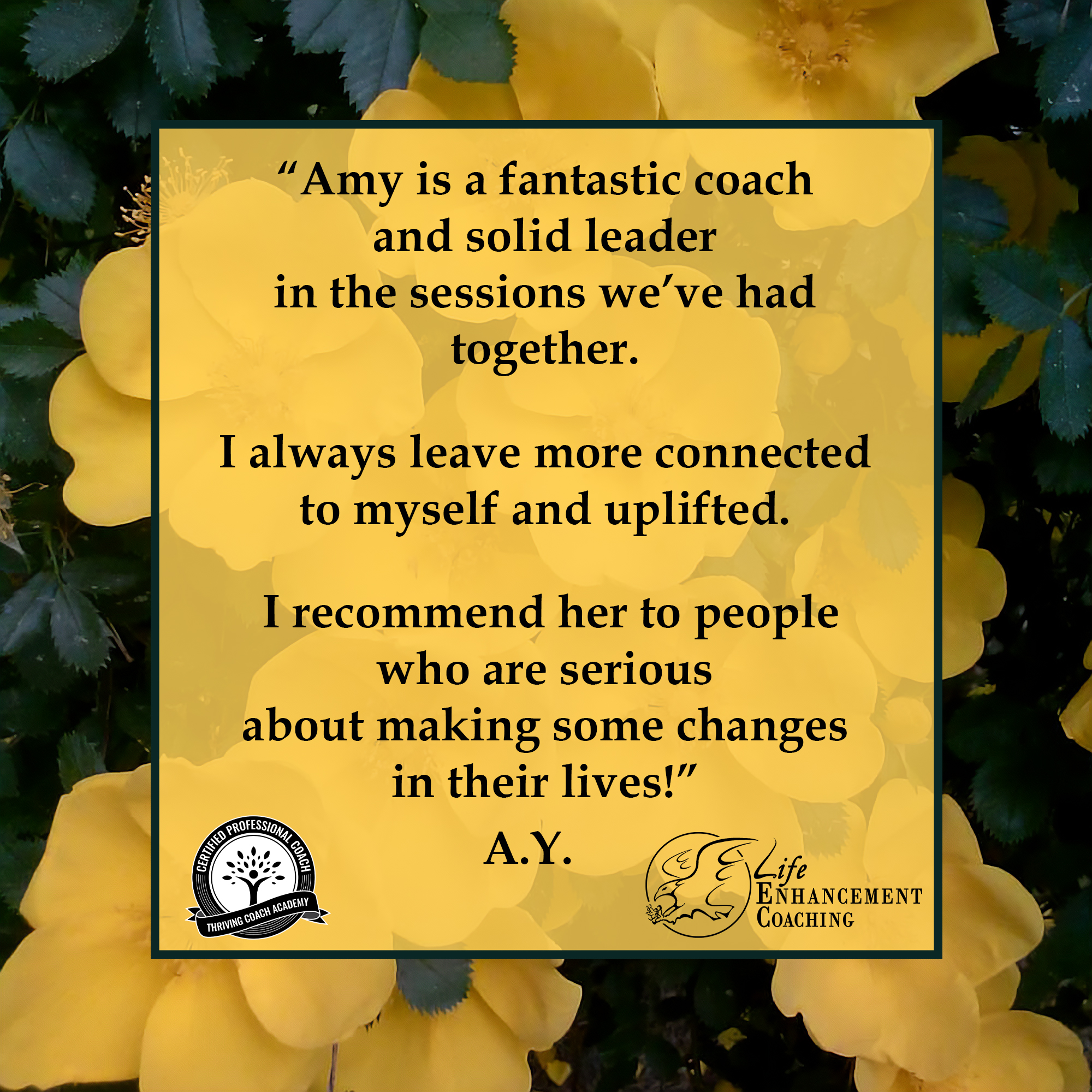
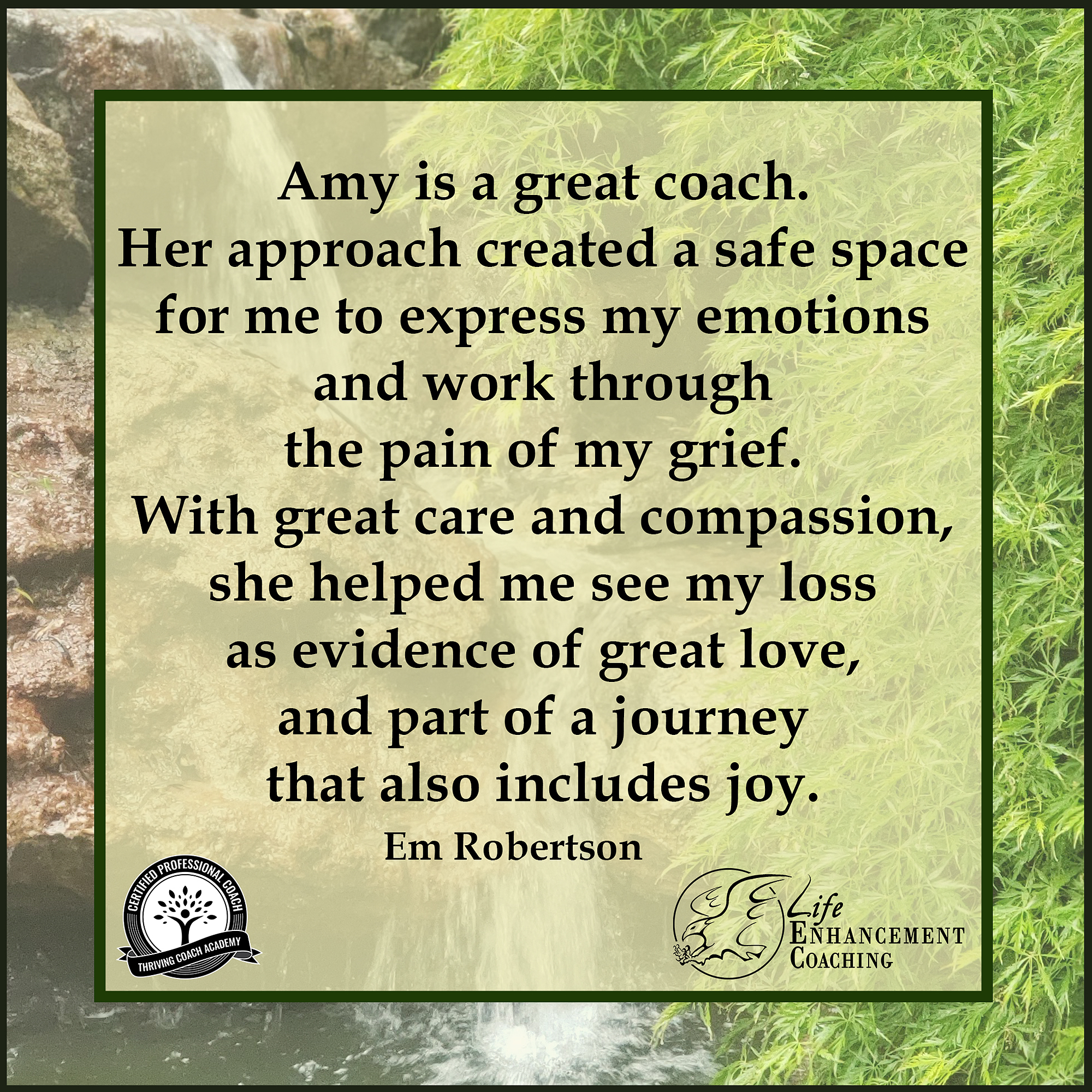
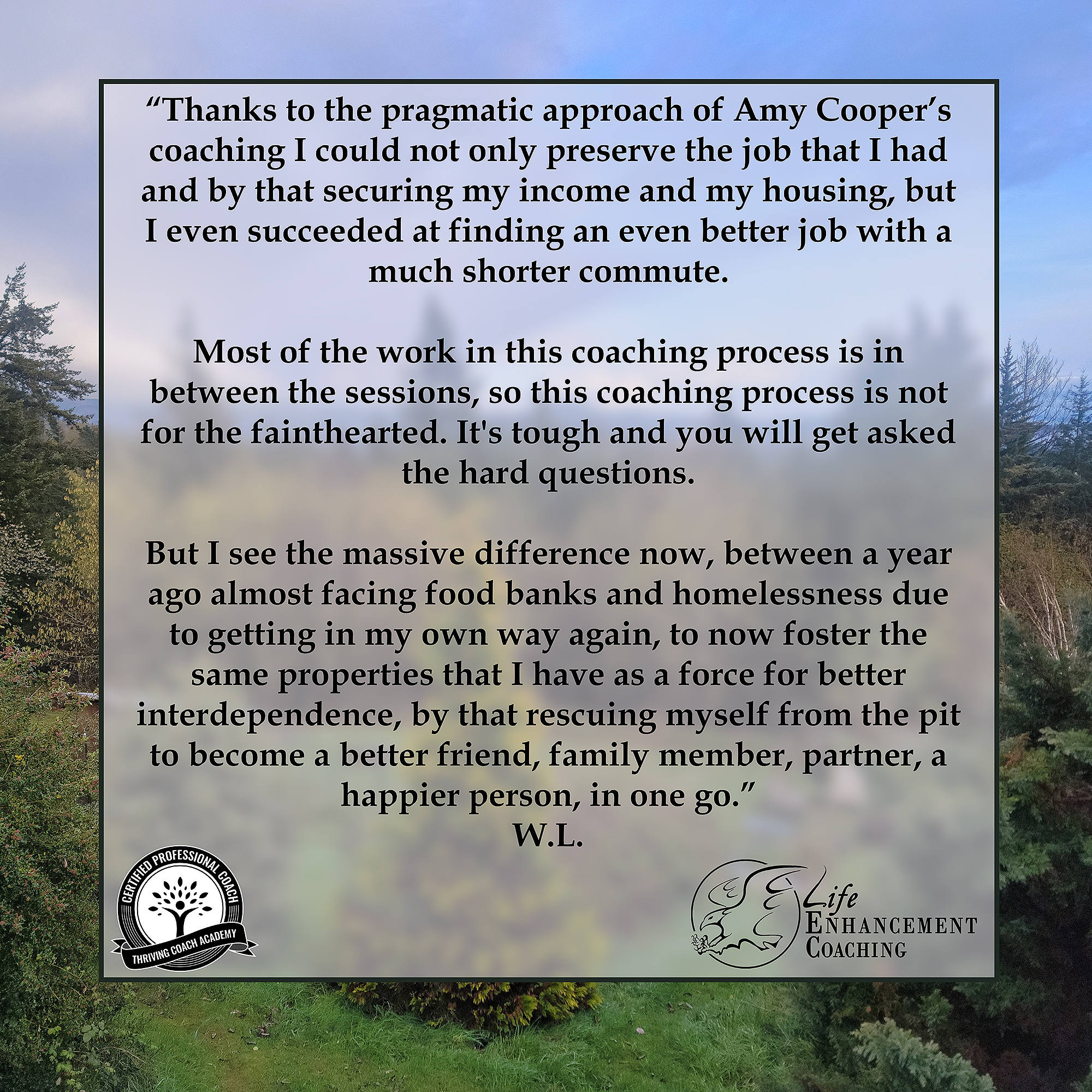
"Then phone rang and suddenly I had the contract for the interesting job with long term prospects in a town nearby with a short commute, in a field that I am familiar with, with very good working conditions. While already working in a good job with a good employer, but one with a longer commute.
Flashback, only a year ago, I was going down the dark path again, about to lose a very good job again despite the support of my employer, as my neurodivergency got out of control, again.
So, I enrolled in a weekly online coaching session process and fast forward twelve months later, it worked.
Thanks to the pragmatic approach of Amy Cooper’s coaching I could not only preserve the job that I had and by that securing my income and my housing, but I even succeeded at finding an even better job with a much shorter commute.
Most of the work in this coaching process is in between the sessions, so this coaching process is not for the fainthearted. It's tough and you will get asked the hard questions.
But seeing the massive difference now, between a year ago almost facing food banks and homelessness due to getting in my own way again, to now foster the same properties that I have as a force for better interdependence, by that rescuing myself from the pit to become a better friend, family member, partner, a happier person, in one go.
All that in itself, made my investment in this weekly coaching process well worth it and in the end having massive returns on it too.
Highly recommended."
W.L.
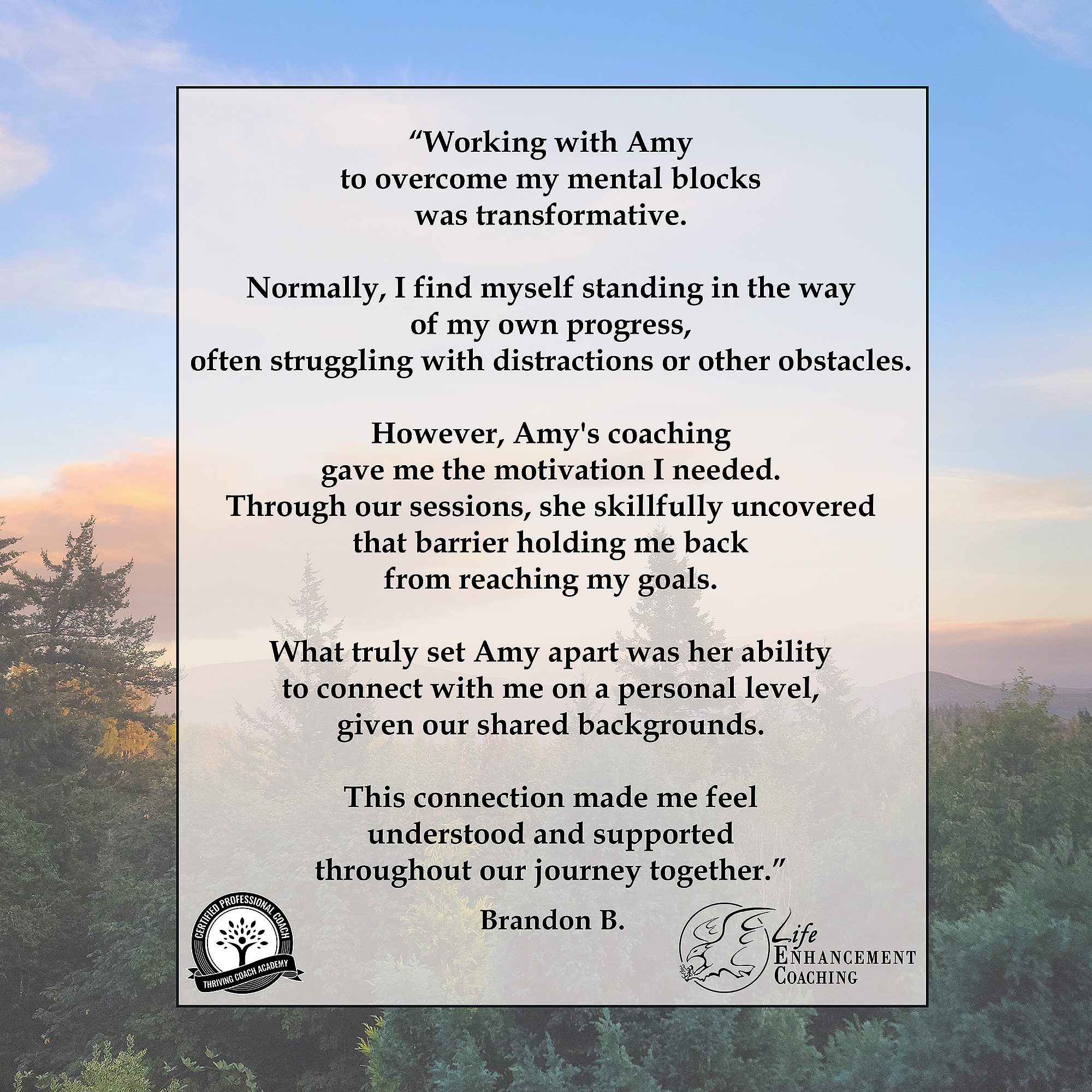
“Working with Amy to overcome my mental blocks was transformative. Normally, I find myself standing in the way of my own progress, often struggling with distractions or other obstacles.
However, Amy's coaching gave me the motivation I needed. Through our sessions, she skillfully uncovered that barrier holding me back from reaching my goals.
What truly set Amy apart was her ability to connect with me on a personal level, given our shared backgrounds. This connection made me feel understood and supported throughout our journey together.
Amy's genuine passion for helping others shone through within our interaction. She isn’t just going through the motions; Amy shows dedication and passion during her sessions. I always felt comfortable and heard during our sessions. Thank you, Amy! I still am working off the momentum from our previous sessions.”
Brandon B.
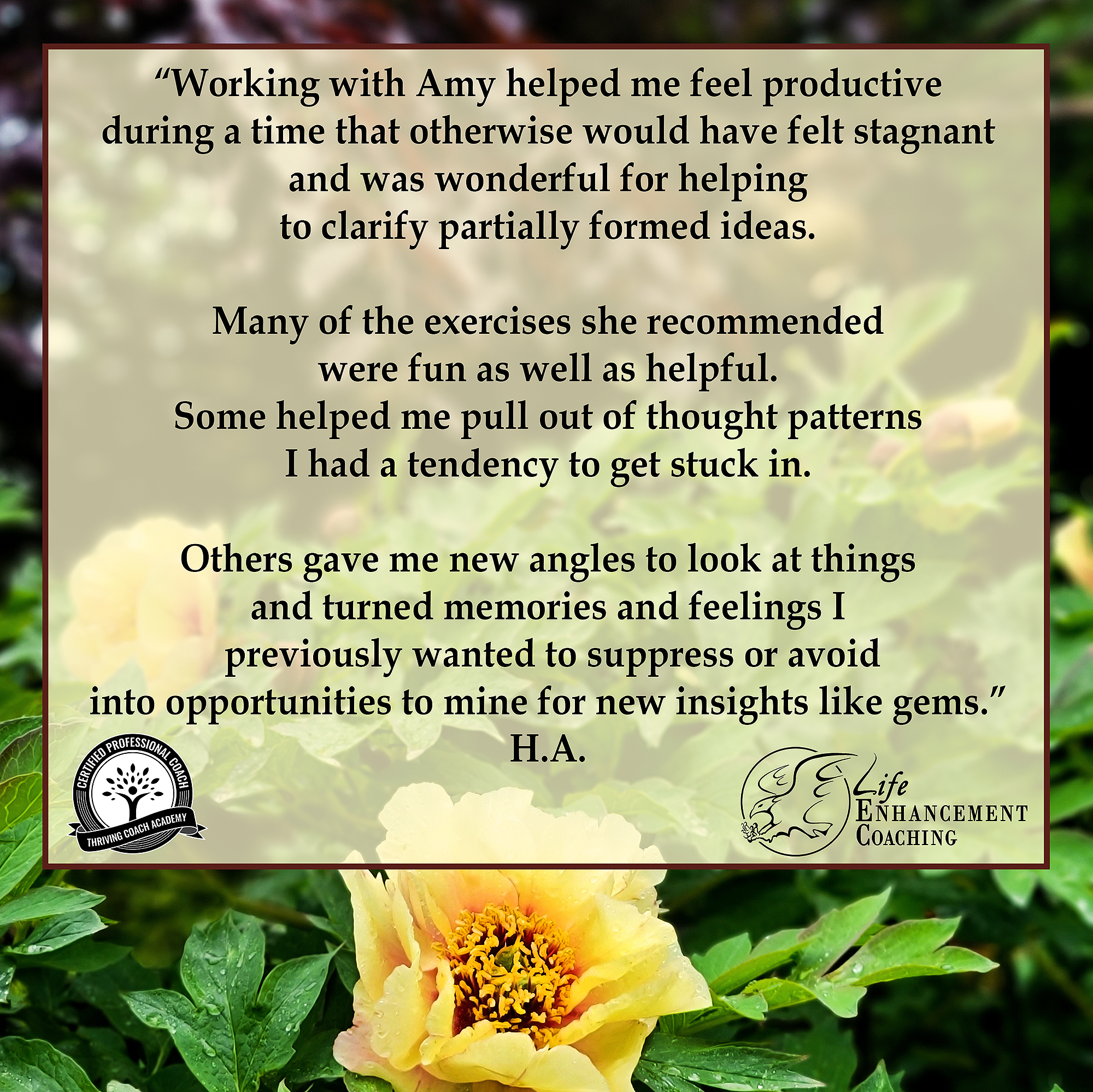
“Amy helped me stay focused and excited during an isolated time where the actions I could take were minimal for medical reasons. I was not lost in life but I was very tired and she helped me focus, brainstorm, and remember what I already had that was valuable to my future endeavors.
I was drawn to her because I related to much of her story and found her successes inspiring as she was familiar with setbacks, regrouping, and restarting.
Working with Amy helped me feel productive during a time that otherwise would have felt stagnant and was wonderful for helping to clarify partially formed ideas.
Many of the exercises she recommended were fun as well as helpful. Some helped me pull out of thought patterns I had a tendency to get stuck in. Others gave me new angles to look at things and turned memories and feelings I previously wanted to suppress or avoid into opportunities to mine for new insights like gems.
She was realistic about the limitations and unpredictability of my situation while still being positive.
I enjoyed the time I spent with her and continue to reference the notes I’ve taken from our sessions as things come up.”
H.A.
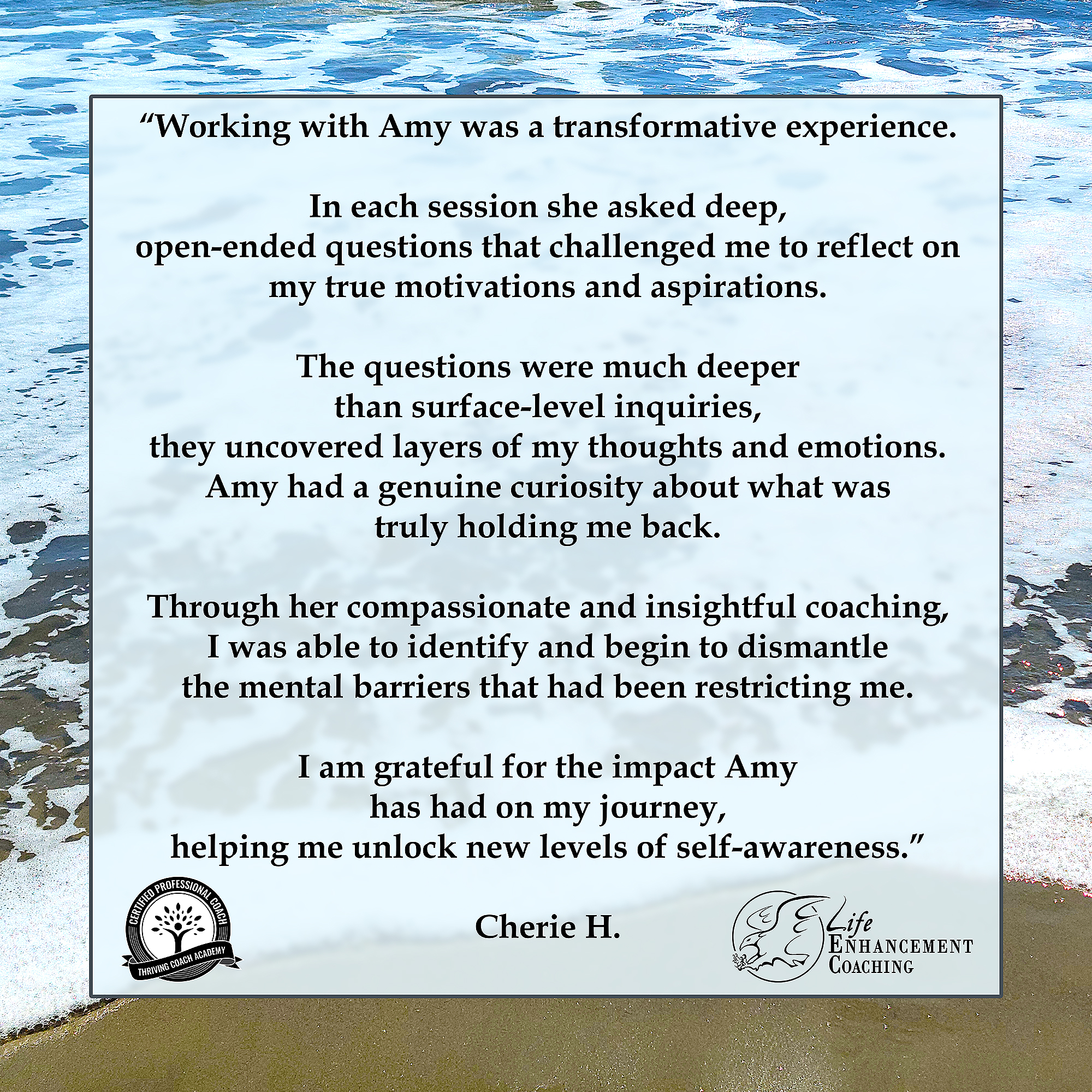
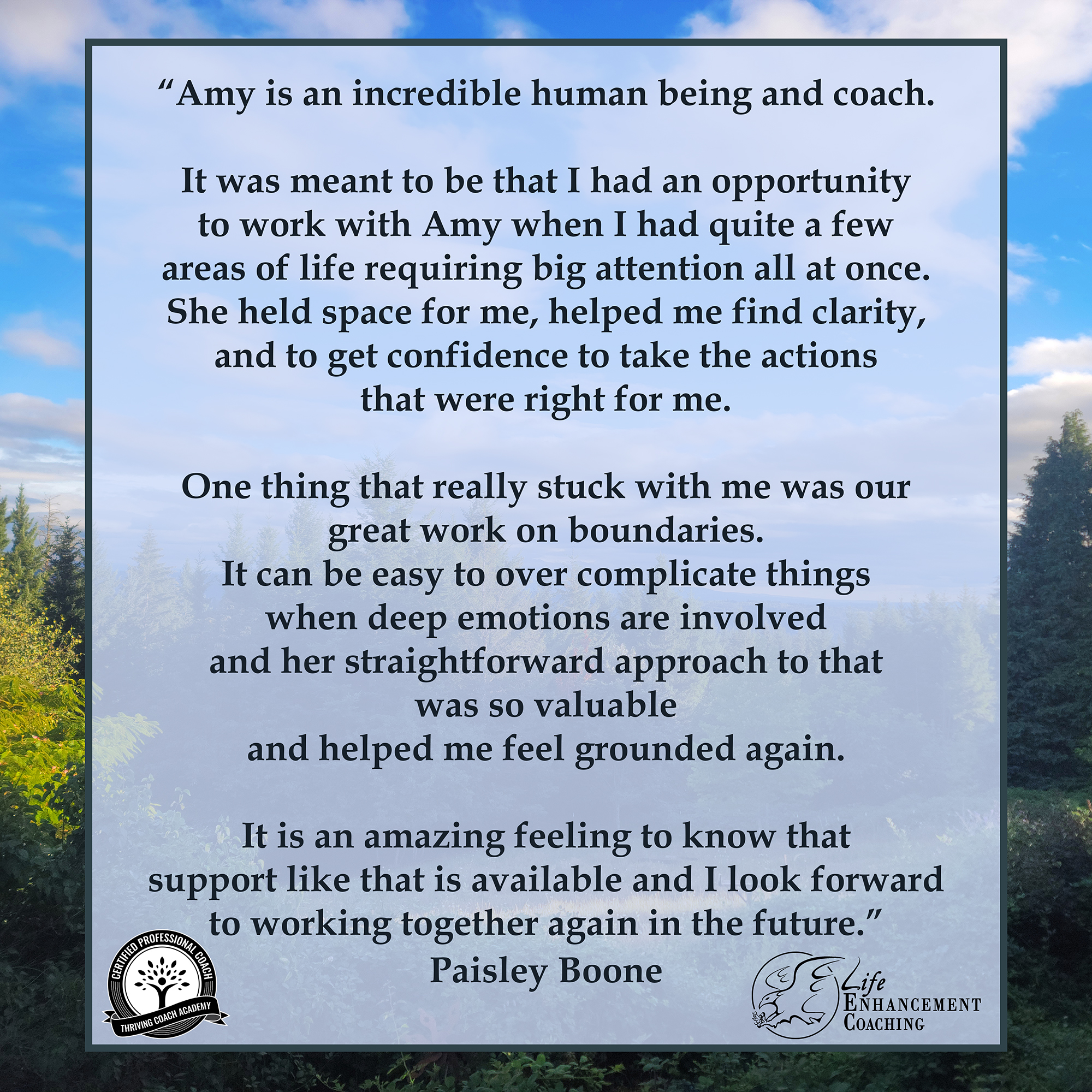
I came to Amy with a grieving heart and a depleted spirit. I was a hollow shell of the person I used to be.
Amy had me go through the Wheel of Life to get a baseline satisfaction score. It was very low. She began coaching me in mindfulness exercises and it was through those early exercises that I found a glimmer of hope that I was so desperately looking for.
As I practiced mindfulness, I began to realize I was not only still capable of success, I was also excelling in several areas. That was a much-needed realization. As I began to feel stronger, Amy introduced more techniques, from Self-Care to Focus Days.
In recent weeks, I have experienced a few set backs, but Amy has helped me regain my footing, through her compassionate guidance, encouragement and calm demeanor. I still have a lot of work to do in order to improve my current situation as well as my overall satisfaction with life, but I'm finally moving in the right direction, with Amy's help.
~Kim in WY
